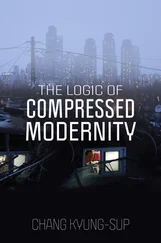“Who?”
“Nicholas. He said you sent him right over. He’s gone to get me a treat. It seemed like a dream but I’m sure it was real. Do you think it was a dream?”
“No,” he said, his anger at himself burning inside his chest. Nicholas must have ridden right over on the scooter while he and Bruno had walked back.
“He didn’t have any money for the gelato,” she said. “I gave him a traveler’s check. I signed it for him.”
“More than one?”
“Yes, I guess so. I don’t know. Do you think they’ll let him use them?”
“They might.”
“I hope so. God, I’m so tired,” she groaned. “I want to wait for him but I have to sleep. I’d love some gelato. Will you make sure to let him back in? Please wake me up when he comes. Will you? I’m so hungry.”
“Okay.”
She closed her eyes. She shivered a little, and so he folded the quilted bedspread from one side of the bed over her. Then he closed the draperies and sat near her in the dark for a long while, thinking about what he would do. He’d search out the nightclubs, as Bruno suggested. He would find him, and not to retrieve any money. Let him have the money. It was by all rights his, anyway. There was no lesson to be offered; Nicholas was certainly beyond any instruction, or shaming. Still, when it came time, he wondered whether he would lose control and try to beat some decency into him. He’d never raised his fists for something as righteous as that. And he kept hearing again his father’s high, rye-soaked voice chirping into his ear while he shouldered him home. You think you’re going to get away with it, boy? You think it doesn’t apply to you? Hector had never bothered asking what exactly his father meant by it , but now, seeing June’s utter frailness, the sad, blunted topography of her beneath the bedspread, her desperate need to believe, he thought he understood at last what his old man had been talking about: life .
Life , still undefeated. Not just for June but for him, too. He had never gotten away with anything, could point to most every instance in his days as evidence of such. His odd father had madly suspected he was some kind of immortal, if a lowly one, but maybe his peers (in the army, at Smitty’s) had like notions after certain miraculous escapes, the almost instantly healing wounds; maybe some unlucky women had caught an aura gracing him, this gleam of persistence. But any persistence, he knew, wasn’t his own doing. He’d never asked for such endurance. All concerned would have been better off had he perished during the war, or in the orphanage fire, or under the bumper of Clines’s car, instead of innocent Dora. And so now, at this sojourn’s end, eyeing June’s demise, he was ready to cast off whatever mantle had been mysteriously bestowed on him. He would disappear along with her. To hide wouldn’t be enough. Another good person would happen across his dooming path, start the cycle again. While driving them here he had circled around the way it would happen, but now he was settling on the idea. His was juvenile imagining but he knew it would have to be catastrophic: accelerate before a tight hill turn and burst through the railing. Wind heavy chains around his ankles to bury himself at sea. Drape his head over the steel train track and listen for the clang. He had tried in earnest, in fact, soon after Sylvie died, looping a rope over a tree limb far away from the orphanage (so no kids would have to see him), cinching the noose, but when he kicked away the stool he’d brought with him the cords of his neck sprang up in protest and jacketed his windpipe and after a while he had to cut himself down, his skin abraded in a mocking necklace of futility, his heart sodden with the full deadweight of defeat. For what was worse than dying, if not being able to die?
But there would be no more enduring for him now.
June stirred, moaning terribly. He could already tell the kind of cry; the morphine was wearing off.
“Nicholas?” she gasped. “Are you here?”
He froze, not wanting to tell her otherwise. She drifted off again. He quickly went downstairs and across the piazza, to where there was a gelateria. He brought her back a double cone of limone , the refreshing scent of which was somehow enough to rouse her from her sleep. She sat up all by herself and took it from him without hesitating, licking it with the eagerness and focus of a child. Her world was becoming quite small, centering on the simplest things. A sweet, tart flavor. A salve of cold in her parched throat. Sometimes there was nothing better than to offer a little succor. While she ate the gelato he prepared her a heavy dose and when she was finished she surprised him by hugging him as tightly as she was able before lying down again. She even turned herself over when she saw him holding the syringe.
“Is Nicholas here?” she said afterward, gazing up past him, searching, her pupils huge, dark.
“Not yet,” he answered.
“He’ll come back. I know it.”
“Yes,” he told her, now looking her straight in her eyes. “He will.”
THEY WERE TRAVELING at what seemed to June a great, soaring speed. Really a wonderful speed. It was Sunday morning and the autostrada was still mostly empty. The sky was shimmering, an electrified vault of blue. They were flying north. She was not up front with Hector anymore but reclined in the back of the sedan, propped up on one side with the pillows he’d bought from the innkeeper of the residenza back in Siena. It was too uncomfortable for her to sit upright or lie flat, and with her knees lifted up toward her chest she could clasp her hands around the backs of her thighs and steady herself with the pressure the way one might tightly press on a bad cut or wound. Of course, she was the wound, but he was being good to her with the needle and although the pain was constant it was routine weather and what she mostly felt in her belly and limbs and in her groin and neck was that certain clinging weight, an ineluctable density that while phantom took its form in a woman’s voice: I’m here, I’m here, I’m here.
She took it as Sylvie’s voice, then the cancer’s, and then, finally, a version of her own. It was melodious enough and yet at the same time washed of human feeling, its notes echoing coldly through her bones. But she could endure it. She could endure most anything now. Even if she could hardly walk more than ten paces at a time, her will was undiminished and perhaps even strengthening; she was convinced that if she could remain at attention and make her thoughts hew to the necessities of each moment, string herself from one to the next, the focus of her mind would not allow her flesh to cede. One need not surrender. It wasn’t always the case. She wasn’t crazy. Although she could hardly distinguish anymore between waking and sleep, each state having bled over into the other enough that she could close her eyes and still see, she felt sure she was right about this. She was almost certain that she could hold on for a long time, maybe indefinitely, croon along with the voice ringing in her head and thus stay hinged to the present. Never let herself go.
That they would be in Solferino later today was a blessing, for she could rest after they arrived and still have some good light to see the church. Or they could take their time, maybe even leave it until the next day, or the next, and the thought occurred to her that instead of an inn or hotel they might stay in an efficiency or even an apartment or villa-they had enough money-where Hector could cook again if he wanted to, make that camper’s stew she loved back then and loved now for its sweet, tomatoey smell, the way it had made her mouth water and ache in the hunter’s cottage like she was truly about to eat again.
Читать дальше











